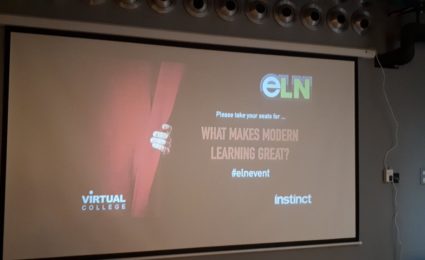The Future of Subject Expertise in the Age of Generative AI
At Candle Digital, we’ve been engaged in some fairly heavy discussions recently – all triggered by OpenAI’s announcements of their advancements in GPT technology. Sam Altman, OpenAI’s CEO or ex-CEO (depending on when you’re reading this), gave an incredible talk outlining some major enhancements in their flagship product, Chat GPT – all of which have huge potential for the online learning space.
In a world where technological progress is rapid and unrelenting, making predictions seems futile. Yet, it’s crucial to consider what the future holds, even it help us focus in one vague direction.
So, what does the rise of generative AI (and GPTs in particular) mean for subject experts like coaches, authors, speakers and trainers?
The Continuing Relevance of Subject Experts
Despite the emergence of AI, we predict that there will always be a strong demand for the insights, guidance, and connection provided by respected subject experts. People seek expertise to achieve transformations or to progress more swiftly. The need for real human experts is undeniable.
Yet, differentiating true experts from those masquerading as such will become increasingly challenging. Generative AI enables the production of convincing content at an unprecedented scale, intensifying the competition for attention within the ‘attention economy.’
So what can subject experts do ensure they stay relevant and in-demand?
Standing Out from the Crowd
Subject experts must find ways to differentiate themselves.
Develop a Unique Perspective
Wes Kao, founder of Maven, coined the phrase ‘spiky point of view‘ to describe how subject experts can distinguish themselves. She described this as:
…a perspective others can disagree with. It’s a belief you feel strongly about and are willing to advocate for. It’s your thesis about topics in your realm of expertise.
Please note that this isn’t a case of being controversial for the sake of it, instead it’s about of saying things in a way that provokes a rethink, perhaps on an existing way of doing things.
Think about it. If a client can wants to do something the way everyone else does it, why wouldn’t they lean on AI (rather than you) to support this?
Demonstrate Authenticity
When generative AI can help anyone with some carefully crafted prompts and some social media know-how position themselves as an expert, there’s a challenge.
True subject experts will need to be able to demonstrate and showcase their credibility repeatedly. There will be a need to highlight experiences of using knowledge and skills in real life use cases – context and relevancy will be critical.
Subject experts should get more comfortable showing their scars. It’s going to be more difficult to suss out who really knows their stuff, so the ‘warts and all’ is going to be more important than ever in establishing credibility.
Lead, Don’t Follow
Subject experts won’t be able to follow someone else’s lead. Instead they’ll need to strive to be at the forefront of their industry and drive real change. They’ll need to talk about this out loud – consistently.
Niche down
AI is going to help more people enter your sector. A broad brush approach to a subject area is going to be more difficult to retain a stronghold position on ( e.g. “leadership”). Instead, subject experts will need to nail a niche that almost feels uncomfortably tight, then work hard to own this space.
Staying Relevant
So if you’ve established your credibility, what does this mean for how you share your expertise?
Foster Deep Connections
Unfortunately many people see online courses as a route to a passive income dream (where you can sell your expertise without having any marginal effort in delivery). We reject this concept completely.
In our view, the term ‘passive income’ has poisoned the well for online learning (particularly in the commercial space) and does the format no favours whatsoever. It reflects a content-first mindset, when it’s the wider learning experience that influences the transformative effect of online learning.
The learning experiences that will thrive will be those that bring people together. As a subject expert, your focus shouldn’t be on simply divulging your experience, but helping likeminded people connect each other. You can be the leader of the tribe and the facilitator of this.
As Donald Clark says, we need to move from ‘monologue’ to ‘dialogue’. AI can provide some aspects of this, but we need to better connect people too.
Focus on Outcomes
Many people see online course development as a multimedia creation exercise, but this is only one part of the process.
So when the content barriers to create an ‘online course’ become so small, what can you do to provide an experience that matters?
This starts with asking the important questions first.
- What’s the desired transformation?
- How deep does this transformation go?
- What’s stopping people from achieving this?
- How can I create an online experience to help them overcome this?
Note these questions aren’t about what needs to be taught – again that’s a content-first mindset. Subject experts need to be thinking about interaction, reflection, challenges, practice, feedback etc and how these can be weaved together to create an effective intervention.
Embrace AI
There are huge opportunities for online learning with AI.
At Candle Digital we’re already experimenting with AI-powered ‘co-pilots’ to support the learning experience. These co-pilots need to capture the subject experts ‘spiky point of view’ – after all they need to be an accurate reflection and tie in with the wider approach.
While we’re yet to tease out the impact of these and the benefits, we see it as critical that we are playing in this space It’s important thing to remember that at this moment, large language models like Chat GPT are the worst they will ever be. Think how far they have come in just a few months – what will they be like in 2-3 years time?
If you’re not experimenting with AI, be prepared to be left behind.
Be Prolific
Subject experts need to be actively creating digital assets that share their knowledge and perspectives. That could be blogs, social media posts, videos, books, whitepapers – there are many different options.
Daniel Priestley actively talks about prolific being more important than perfect. And this is more true than ever. Capture your insights incessantly, and if you haven’t already started – do so. This will be critical for your brand exposure, but it’ll also act as source material for your AI projects. Without this, you’ll be tapping into the same source content as everyone else, where there’s no advantage.
Adopt an Event Mindset
In a market saturated with AI-generated content, experts should offer exclusive, event-based learning experiences, prioritizing quality over quantity. Think how Glastonbury sells out each year and use that model to drive interest in your offering.
Rethink Face-to-Face
Naturally we’re huge advocates for online learning and believers in the untapped potential that lies in this space. We know we’ve yet to really uncover the true transformative power in online learning.
But there’s still a space for face-to-face (but that space is most definitely not about knowledge transfer). Face-to-face contact should be focused around guided meet-ups that allow people to connect, share and collaborate with their peers and build new and stronger relationships. For us face-to-face needs to be even more of a consideration moving forwards, especially given the increasing event mindset.
But none of this is new…
Of course it isn’t. Subject experts need to be thinking about all these aspects, even if it AI wasn’t on the scene. But AI is going to accelerate things at a speed many will struggle to keep up with. Those who can deliver on the above will be far better positioned to benefit and thrive in an AI-augmented world.
The gauntlet has been thrown – are you ready to rise to the challenge?
Fresh insights direct to your inbox
Join the Candle Digital mailing list




